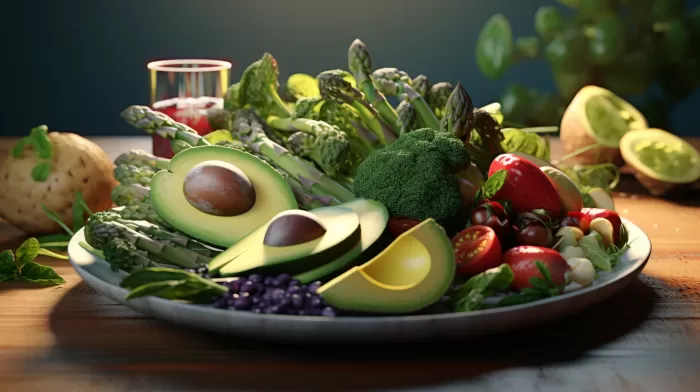Feeling the winter blues? Your diet might be to blame. Many researchers believe there are strong links between the food we consume and our mood. Junk foods, such as heavily processed, fried, and artificial, can have negative impacts on both the brain and our emotions. When we consume these foods, they stimulate short-term reward centers, much like narcotic drugs, which can lead to dependency, mood imbalances, and other health problems.
On the other hand, people who eat more vegetables and fruits have been found to have better emotional stability and happiness, along with reduced stress and anxiety. Recent research also shows that antioxidants, found in many plant-based foods, promote emotional well-being.
Fruits, Vegetables, and Happiness
A 2013 study published in the British Journal of Health Psychology found that young adults who ate more fruits and vegetables felt calmer, happier, and more energetic. More recently, a larger study published in Social Indicators Research examined the diets of 80,000 people in Britain and showed that happiness and emotional well-being increased with the number of daily servings of vegetables and fruits consumed. Researchers suggest that consuming seven servings of fruits and vegetables each day brought the most significant improvements in emotional wellness.
Of course, combining good-mood foods with regular exercise, mind-body practices, and targeted natural supplements can also promote even greater health and happiness.
Good Mood Super-Foods
Which foods should you try to incorporate into your diet to boost your mental, emotional, and overall physical health and wellness? These whole foods are rich in antioxidants, minerals, and nutrients to support relaxation and enhance mental clarity and happiness.
Greens
Leafy greens like spinach, beet greens, collards, and kale are packed with nutrients that your brain and body will love. These foods contain magnesium, which promotes relaxation and helps increase GABA activity in the brain (a neurotransmitter involved in relaxation and stress relief). Additionally, greens contain B vitamins and folate, which help manage stress. Microalgae such as spirulina, with its high chlorophyll content, are also considered green foods. Spirulina is rich in stress-busting vitamin B-12, protein, minerals, and helps balance blood sugar levels, which is essential for a healthy mood.
Cruciferous Vegetables
Cruciferous vegetables, particularly broccoli, are nutrient-dense powerhouses. They contain several active compounds that support mental and emotional well-being. Cabbage contains tryptophan and selenium, which help relax and improve mood. Broccoli is high in vitamin C, which counters the effects of increased cortisol. Cruciferous vegetables are also excellent detoxifiers and are loaded with antioxidants that promote long-term wellness in various aspects of mental, emotional, and physical health.
Avocados
Avocados are nutritional superfoods, packed with healthy mood-boosting fats, proteins, vitamin B-6, and folate. They also contain tryptophan, which helps promote healthy relaxation and the production of serotonin, the mood-enhancing neurotransmitter.
Asparagus
Asparagus is a top source of tryptophan and folic acid, which play numerous critical roles in health, including mood-boosting. This stalky vegetable also contains vitamins A, B6, C, K, thiamine, zinc, and beta carotene. Consuming asparagus also gives you glutathione, a key nutrient for anti-inflammatory and detoxification functions.
Coconut
Coconut-based products, including coconut milk and butter, are becoming increasingly popular and for good reason. Coconut is a source of healthy fats and unique nutrients that many people find enhance their emotional well-being. The medium-chain fatty acids in coconut support brain health and a better mood.
Botanicals
Purified honokiol extract from magnolia bark, a staple of traditional Chinese herbalism, is an excellent way to support relaxation and a healthy mood. Honokiol helps regulate the production of GABA and is a powerful antioxidant that crosses the blood/brain barrier to support cognitive function in various ways. At higher doses, it’s a significant cellular health agent, promoting optimal cell function and reducing inflammation throughout the body.
Intimate Connections
Physical health and mental/emotional health are closely connected. As your body becomes healthier with the right anti-inflammatory foods, lifestyle habits, and targeted natural supplements, happiness, relaxation, brain function, and vitality increase too. These self-care practices help nourish the positive outlook and energy needed to optimize health and wellness for life.
For more health and wellness information, visit www.dreliaz.org.



